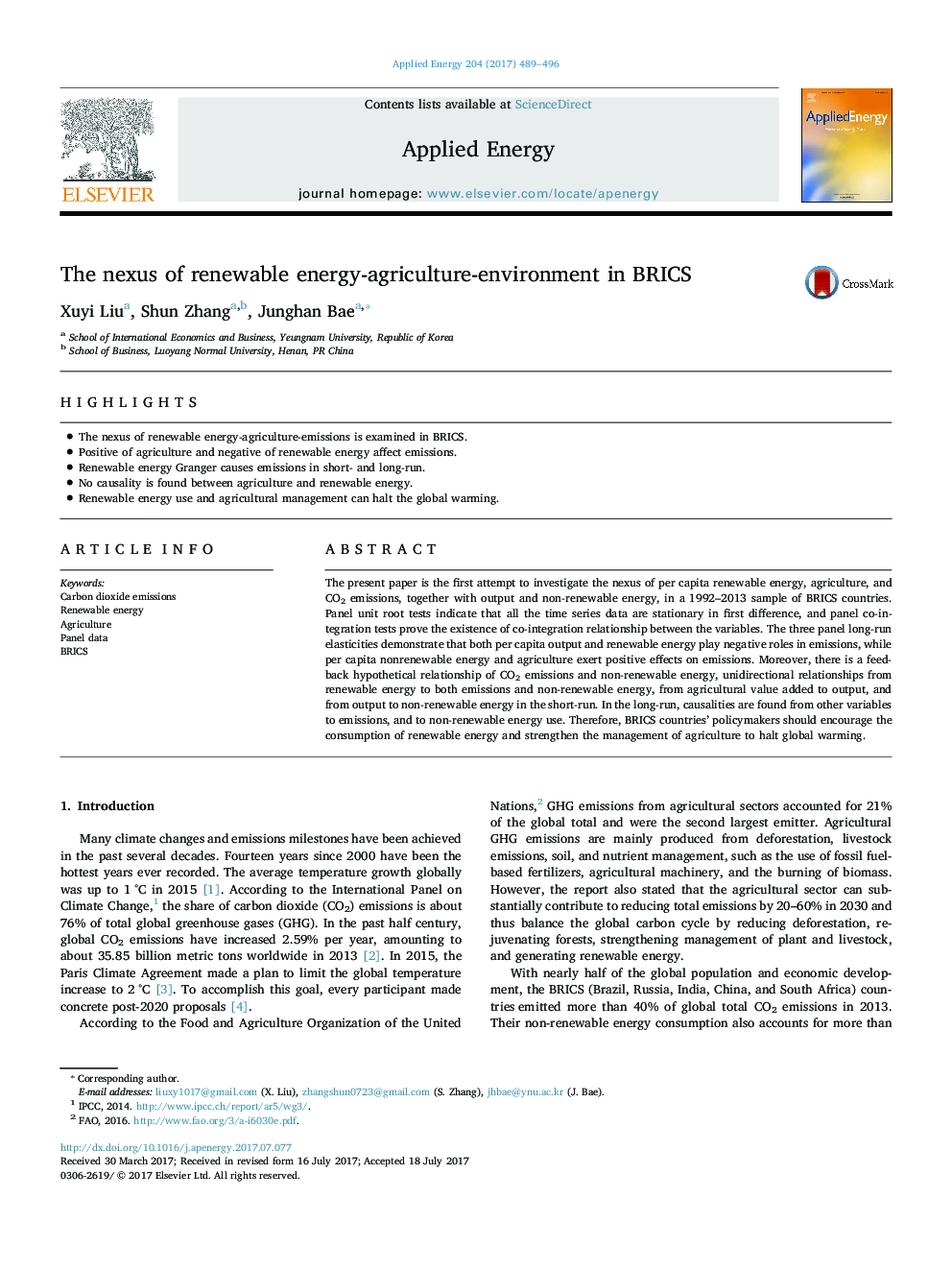| Article ID | Journal | Published Year | Pages | File Type |
|---|---|---|---|---|
| 4916070 | Applied Energy | 2017 | 8 Pages |
Abstract
The present paper is the first attempt to investigate the nexus of per capita renewable energy, agriculture, and CO2 emissions, together with output and non-renewable energy, in a 1992-2013 sample of BRICS countries. Panel unit root tests indicate that all the time series data are stationary in first difference, and panel co-integration tests prove the existence of co-integration relationship between the variables. The three panel long-run elasticities demonstrate that both per capita output and renewable energy play negative roles in emissions, while per capita nonrenewable energy and agriculture exert positive effects on emissions. Moreover, there is a feedback hypothetical relationship of CO2 emissions and non-renewable energy, unidirectional relationships from renewable energy to both emissions and non-renewable energy, from agricultural value added to output, and from output to non-renewable energy in the short-run. In the long-run, causalities are found from other variables to emissions, and to non-renewable energy use. Therefore, BRICS countries' policymakers should encourage the consumption of renewable energy and strengthen the management of agriculture to halt global warming.
Related Topics
Physical Sciences and Engineering
Energy
Energy Engineering and Power Technology
Authors
Xuyi Liu, Shun Zhang, Junghan Bae,
